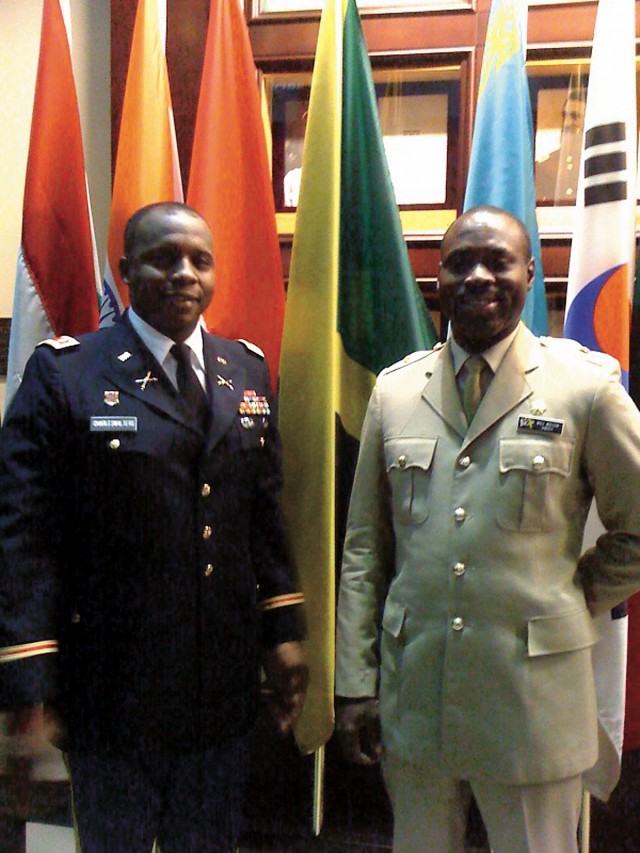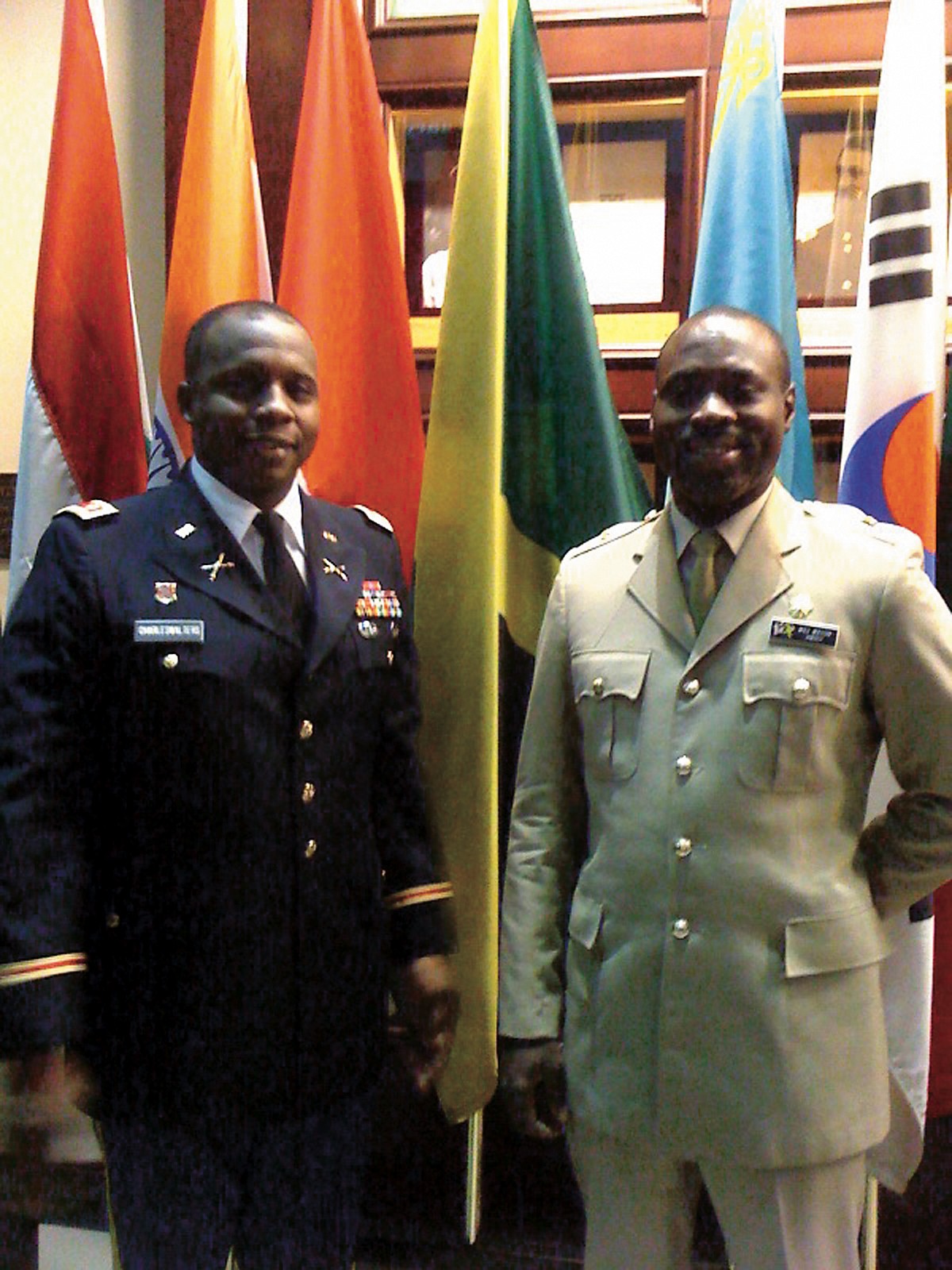
FORT LEAVENWORTH, Kan. (Feb. 18, 2010) - Two childhood friends from Jamaica are reunited more than 20 years later in Kansas as officers and students in Intermediate Level Education class 2010-02 at Fort Leavenworth's Command and General Staff College.
Maj. Radgh Mason, an infantry officer in the Jamaica Defence Force, and Maj. Hugh Charles-Walters, a U.S. Army artillery officer, grew up together one street apart in the Cooreville Gardens community of Kingston, but lost contact with each other after high school.
In 1989 Mason was commissioned into the JDF and attended Royal Military Academy Sandhurst in the United Kingdom, while Charles-Walters immigrated to the U.S. with his family, settling in Miami, Fla.
"Three months after I came to the states, I joined the Army," Charles-Walters said.
He said he served eight years in field artillery and achieved the rank of staff sergeant. Charles-Walters said he took night courses for six years, earned a degree and went to Officer Candidate School at Fort Benning, Ga., where he was commissioned a second lieutenant in field artillery.
Charles-Walters said his father always spoke highly of the U.S. Army and encouraged him to join.
"He wanted me in the Army. I think during his lifetime he always looked up to the way the U.S. Army does business, the professionalism and everything that is kind of portrayed by the U.S. Army," Charles-Walters said.
He said his father was a retired JDF warrant officer, attended U.S. Army Ranger School and participated in several exercises with the Puerto Rico Army National Guard. Mason said Charles-Walters' father was very well known and famous in the JDF.
Mason and Charles-Walters saw each other again in November when Charles-Walters returned to Jamaica for his father's funeral, and they discovered they would both be at Fort Leavenworth at the same time for ILE.
"I didn't even know he was in the Army," Mason said.
Mason said the JDF does not have a senior staff college, so officers must choose to attend school in the U.S., U.K., or Canada. He said he chose the U.S. and CGSC because he wants to study and learn what makes the U.S. successful as a nation and as a military.
Mason said there is a strong cultural connection between Jamaica and the U.S., and a large Jamaican community living in the states. He said his uncle was a corporal in the JDF, but now resides in New Jersey.
"There's no Jamaican you will find that does not have a close relative in the U.S.," he said.
The trip to Kansas and ILE is only the second time Mason has been in the U.S. - he previously attended a peacekeeping course in Washington, D.C., in 2001.
Charles-Walters said he wants to help teach Mason about the U.S. Army, American culture and mindset. He said one of the biggest differences Mason will face, other than adjusting to the weather, is flexibility and the level of responsibility placed on mid-grade officers in the U.S. Army.
Mason said he hopes to gain an understanding of the culture and the people in the U.S and in the Army.
"To actually interact with the real people, military, knowing what are the toughest fights of their life - that is what I'm hoping to learn so that I can apply it back home," Mason said.
He said after ILE he will return to Jamaica and continue to serve as the finance officer for the JDF.
"It's just interesting the whole six degrees of separation rule, where for 20 years you'll pick up a career and move, and then you come right back around to someone you grew up with, went to elementary and high school with, kind of went off on your own path but followed the same track for 20 years," Charles-Walters said.
"It's one of those rarities," Mason said.

Social Sharing